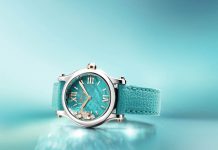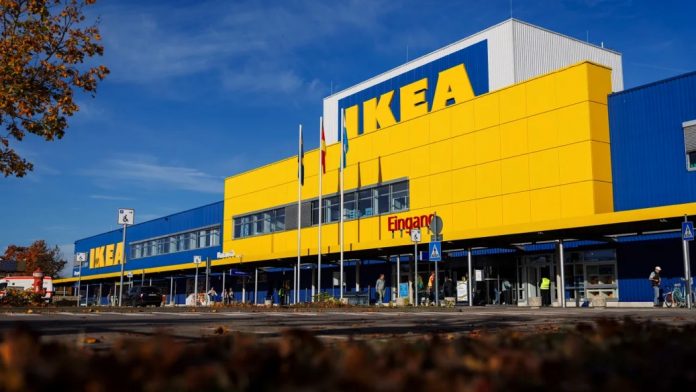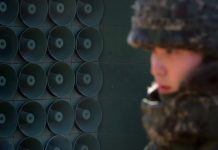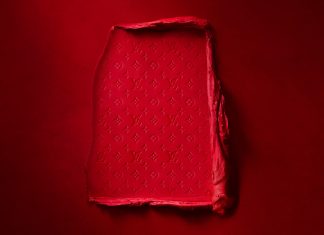บริษัทเฟอร์นิเจอร์ยักษ์ใหญ่ IKEA ตกลงที่จะจ่ายเงินจำนวน 6 ล้านยูโร (ประมาณ 6.5 ล้านดอลลาร์) ให้กับกองทุนของรัฐบาลที่ชดเชยผู้ที่ตกเป็นเหยื่อจากการใช้แรงงานบังคับในช่วงระบอบคอมมิวนิสต์ของเยอรมนี ซึ่งการดำเนินการนี้ได้รับการสนับสนุนจากกลุ่มที่รณรงค์หวังว่าจะเป็นแรงกดดันให้บริษัทอื่น ๆ ปฏิบัติตาม
ในช่วงสงครามเย็น ผู้ต้องขังทั้งทางการเมืองและอาชญากรในเยอรมนีถูกบังคับให้ผลิตเฟอร์นิเจอร์แบบแบนแพคสำหรับ IKEA การเปิดเผยเรื่องนี้เกิดขึ้นจากรายงานของสื่อสวีเดนและเยอรมันเมื่อมากกว่าทศวรรษที่ผ่านมา ส่งผลให้บริษัทได้ว่าจ้างการสอบสวนอย่างอิสระ
การสอบสวนที่ดำเนินการโดยบริษัทตรวจสอบ Ernst & Young พบว่าผู้ต้องขังยังคงผลิตเฟอร์นิเจอร์ให้กับ IKEA ซึ่งเป็นยักษ์ใหญ่ในอุตสาหกรรมเฟอร์นิเจอร์ในบ้าน โดยเฉพาะในช่วงปี 1970 และ 1980 ตัวแทนจาก IKEA ในขณะนั้นน่าจะรู้ดีว่ามีการใช้แรงงานของผู้ต้องขังทางการเมืองเพื่อเสริมแรงงาน
อดีตเยอรมนีตะวันออกถูกยึดครองโดยสหภาพโซเวียตตั้งแต่ปี 1949 จนถึงปี 1990 ซึ่งได้ติดตั้งระบอบคอมมิวนิสต์ที่เข้มงวดในชื่อว่า สาธารณรัฐประชาชนเยอรมัน (GDR) ผู้ต้องขังหลายหมื่นคนถูกบังคับให้ทำงานในโรงงาน ทำให้พื้นที่นี้กลายเป็นสถานที่สำคัญสำหรับแรงงานราคาถูกที่บริษัทตะวันตกหลายแห่งได้รับประโยชน์
ผู้ต้องขังทางการเมืองใน GDR หลายคนถูกจำคุกเพียงเพราะการ “กระทำผิด” ที่เป็นการคัดค้านระบอบคอมมิวนิสต์แบบพรรคเดียว การต่อต้านรัฐถูกปราบปรามโดยหน่วยงานตำรวจลับ Stasi ของเยอรมนีตะวันออก ซึ่งสอดส่องดูแลเกือบทุกด้านในชีวิตประจำวันของประชาชน
ในแถลงการณ์เมื่อสัปดาห์นี้ IKEA เยอรมนีได้ประกาศว่าจะจ่ายเงินจำนวน 6 ล้านยูโรโดยสมัครใจให้กับกองทุนรัฐบาลใหม่ที่จัดตั้งขึ้นเพื่อชดเชยผู้ที่ตกเป็นเหยื่อจากระบอบคอมมิวนิสต์ในเยอรมนี
หลังจากการรณรงค์หลายทศวรรษโดยกลุ่มผู้เสียหาย รัฐบาลผสมในเยอรมนีเสนอในปี 2021 ให้ตั้งกองทุนช่วยเหลือสำหรับผู้ที่ได้รับผลกระทบ สภาเยอรมันจะมีการลงคะแนนเสียงเพื่อจัดตั้งกองทุนในสัปดาห์หน้า แม้ว่าในขั้นตอนนี้จะถือเป็นเรื่องที่ไม่มีความขัดแย้ง
แถลงการณ์ของ IKEA ยังระบุว่า การจ่ายเงินนี้เกิดจากการสนทนาอย่างยาวนานระหว่างสาขาเยอรมนีของบริษัทกับสหภาพผู้เสียหายจากการปกครองคอมมิวนิสต์ (UOGK) ซึ่งเป็นองค์กรที่อ้างว่าทำงานเพื่อให้แน่ใจว่าผู้ที่ถูกตัดสินผิดในเยอรมนีคอมมิวนิสต์จะได้รับความยุติธรรมในรัฐที่มีรัฐธรรมนูญในปัจจุบัน
ในแถลงการณ์ที่ส่งให้กับ CNN วอลเตอร์ คัดเนอร์ CEO และประธานเจ้าหน้าที่ฝ่ายความยั่งยืนของ IKEA เยอรมนี กล่าวว่า “เรารู้สึกเสียใจอย่างยิ่งที่ผลิตภัณฑ์สำหรับ IKEA ได้ถูกผลิตโดยผู้ต้องขังทางการเมืองใน GDR ด้วย ตั้งแต่ที่เรื่องนี้ได้ถูกเปิดเผย IKEA ได้ทำงานอย่างต่อเนื่องเพื่อชี้แจงสถานการณ์
“เรารับปากกับผู้ที่ได้รับผลกระทบว่าเราจะมีส่วนร่วมในการสนับสนุน เราจึงยินดีที่การจัดตั้งกองทุนช่วยเหลือเกิดขึ้น และเรารู้สึกดีใจที่สามารถรักษาสัญญาของเราไว้”
การจ่ายเงินที่สำคัญของ IKEA ถือเป็นครั้งแรกในลักษณะนี้ การดำเนินการนี้ได้รับการตอบรับจากองค์กรที่สนับสนุนผู้ที่ตกเป็นเหยื่อ
ดีเตอร์ ดอมบรอฟสกี ประธาน UOGK กล่าวว่า การพัฒนานี้ถือเป็น “การเปลี่ยนแปลงที่สำคัญ”
“หลังจากที่รู้ว่าบริษัทมีส่วนเกี่ยวข้องกับการใช้แรงงานบังคับจากเรือนจำ IKEA ยอมรับคำเชิญของเราให้พูดคุย เราได้ร่วมกันเดินทางในเส้นทางของการเปิดเผยความจริง และ IKEA ได้พบกับผู้ที่ได้รับผลกระทบในฐานะคู่เจรจา”
“เราหวังว่าบริษัทอื่น ๆ จะทำตามตัวอย่างของ IKEA” ดอมบรอฟสกีกล่าวเสริม
ตามข้อมูลของ UOGK IKEA เป็นหนึ่งในหลายบริษัทที่ได้รับประโยชน์จากการใช้แรงงานบังคับในเยอรมนีคอมมิวนิสต์ ราอินเนอร์ วากเนอร์ อดีตประธาน UOKG ได้เตือนในปี 2012 ว่า IKEA เป็น “เพียงแค่ยอดภูเขาน้ำแข็ง” ขณะที่เขาเรียกร้องให้บริษัทต่าง ๆ ชดเชยผู้ต้องขังในอดีตที่ยังคงแบกรับบาดแผลทางจิตใจจากการถูกจำคุกและการใช้แรงงานบังคับ
เอฟลีน ซูพเค ตัวแทนพิเศษสำหรับผู้เสียหายใน GDR ในรัฐสภาเยอรมัน กล่าวว่า “การสัญญาของ IKEA ในการสนับสนุนกองทุนช่วยเหลือแสดงให้เห็นถึงแนวทางที่มีความรับผิดชอบในการจัดการกับบทมืดในประวัติศาสตร์ของบริษัทเอง
“เราไม่สามารถลบล้างสิ่งที่ผู้ต้องขังต้องทนทุกข์ในเรือนจำ GDR ได้ แต่เราสามารถปฏิบัติต่อพวกเขาด้วยความเคารพในวันนี้และสนับสนุนพวกเขาได้”
IKEA will pay 6 million euros to East German prisoners forced to build their furniture in landmark move
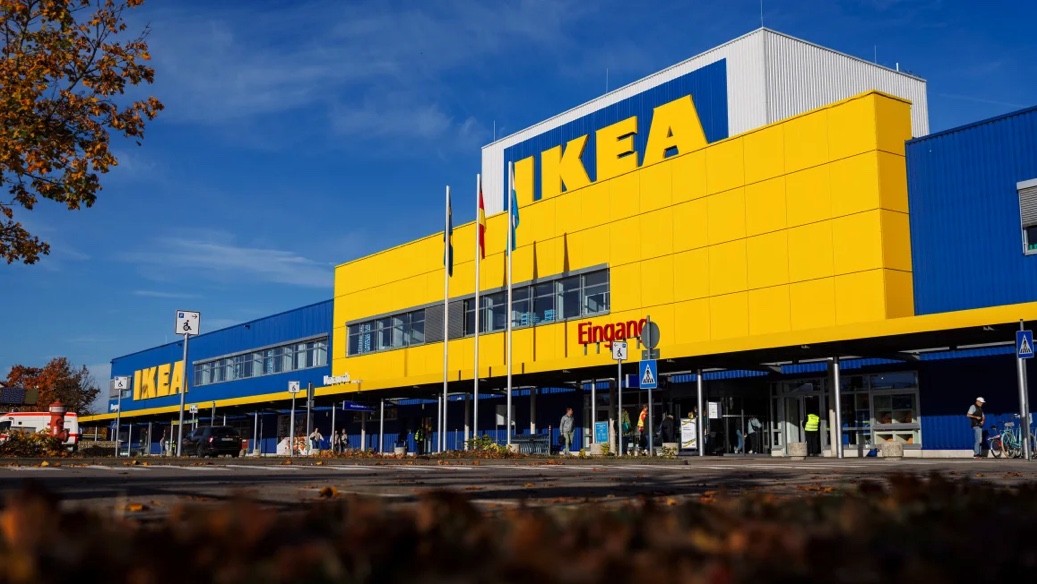
Furniture giant IKEA has agreed to pay 6 million euros ($6.5 million) towards a government fund compensating victims of forced labor under Germany’s communist dictatorship, in a move campaigners hope will pressure other companies to follow.
Political as well as criminal prisoners in Germany during the Cold War era were forced to build flatpack furniture for IKEA. The revelations came to light in Swedish and German media reports more than a decade ago, prompting the company to commission an independent investigation.
Prisoners were producing furniture for IKEA, a global giant in the home furnishings industry, as recently as the 1970s and 1980s, the investigation conducted by auditors Ernst & Young found. IKEA representatives at the time were likely aware that political prisoners were being used to supplement labor, the report found.
The former East Germany was occupied by the Soviet Union from 1949 until 1990, which installed a rigid communist state known as the German Democratic Republic, or GDR. Tens of thousands of its prisoners were forced into factory work, making it a key location for cheap labor that many Western companies are understood to have benefitted from.
Many of the GDR’s political prisoners would have been incarcerated for the simple “crime” of opposing the one-party communist state. Opposition to the state was stamped out by East Germany’s feared Stasi secret police, which spied on almost every aspect of people’s daily lives.
In a statement this week, IKEA Germany announced it would voluntarily put 6 million euros towards the new government fund established to provide compensation to victims of the East German dictatorship.
After decades of campaigning by victim groups, Germany’s ruling coalition government proposed in 2021 to set up the hardship fund. The German parliament will vote on its establishment in the coming weeks, although this step is seen as a mere formality.
The IKEA statement adds that the payment is the result of years-long conversations between the company’s German branch and the Union of Victims’ Associations of Communist Dictatorship (UOGK) — an organization that describes itself as working to ensure those wrongly convicted in communist Germany receive justice in today’s constitutional state.
In a statement provided to CNN, Walter Kadner, CEO and Chief Sustainability Officer at IKEA Germany, said: “We deeply regret that products for IKEA were also produced by political prisoners in the GDR. Since it became known, IKEA has consistently worked to clarify the situation.
“We have given our word to those affected that we will participate in providing support. We therefore welcome the implementation of the hardship fund and are pleased to be able to keep our promise.”
IKEA’s landmark payment is the first of its kind. The move has been welcomed by organizations that advocate for victims.
Dieter Dombrowski, the chairman of UOGK, described the development as “groundbreaking.”
“After it became known that the company was involved in forced prison labor, IKEA accepted our invitation to talk. Together we have taken the path of enlightenment and IKEA has met those affected on an equal footing.”
“We hope that other companies will follow IKEA’s example,” Dombrowski added.
According to UOGK, IKEA is one of many companies that benefitted from forced prison labor in communist Germany. Former UOKG chairman Rainer Wagner warned in 2012 that IKEA is “just the tip of the iceberg” as he called for companies to compensate former prisoners who still bear the psychological scars of incarceration and forced labor.
Evelyn Zupke, special representative for GDR victims in the German parliament, said: “IKEA’s pledge to support the hardship fund is an expression of a responsible approach to dealing with dark chapters in the company’s own history.
“We can’t undo what prisoners had to suffer in the GDR’s prisons, but we can treat them with respect today and support them.”
By Sophie Tanno, CNN



